Have you looked at those global “quality of life” rankings? They paint a pretty surprising picture.
Spain was ranked the number one country in the world for quality of life in 2025.
Meanwhile, the United States keeps sliding. One major index shows the U.S. falling from 9th to 27th in just ten years.
It feels like a paradox. Americans make more money on average.
We grow up hearing that money equals happiness.
We’re encouraged to hustle, grind, and stay “productive.”
But that same hustle culture is burning people out.
A 2024 poll found that 80% of Millennials say it leads to burnout or health problems.
Gen Z feels it too. 62% say they feel financial pressure just trying to keep up with everyone else.
So how does Spain pull off the opposite?
It’s not a mystery. They’re simply playing a different game.
The Spanish lifestyle isn’t built around financial wealth.
It’s built around communal wealth: time, safety, relationships, and daily enjoyment.
They prioritize connection over competition and balance over burnout.
Let’s break down the nine ways Spaniards build a rich life without needing the oversized bank account so many Americans think is necessary.
Contents
- 1 1. They “Work to Live,” Not “Live to Work”
- 2 2. They Get 22 Mandatory Paid Vacation Days
- 3 3. They (Statistically) Work Less
- 4 4. They Have a Real, Social Lunch (Not a “Siesta“)
- 5 5. The Menú del Día Makes Quality Food Accessible
- 6 6. Healthcare Is a Right, Not a Financial Crisis
- 7 7. They Have Security in Old Age
- 8 8. Life Happens in the “Public Living Room”
- 9 9. They Invest in Daily Social Rituals
- 10 Redefining What It Means to Be “Rich”
1. They “Work to Live,” Not “Live to Work”
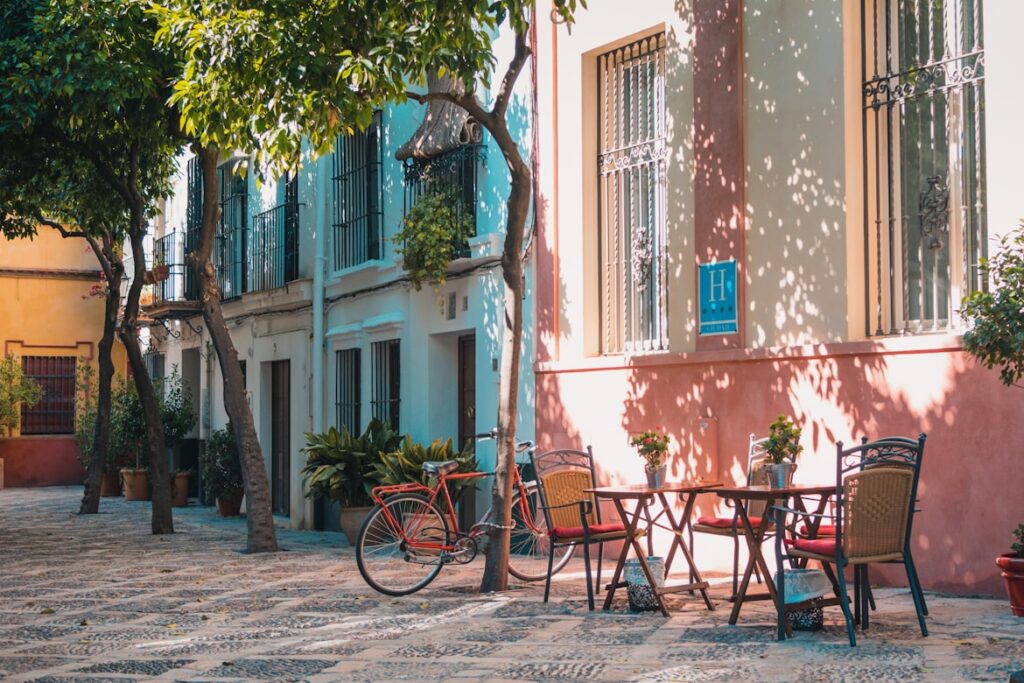
This is the big one. The rule everything else grows from.
In the U.S., a lot of us end up living to work.
Being busy becomes a badge of honor. Your job title turns into part of your identity. It’s the core of the hustle-culture mindset.
Spain flips that completely. Spaniards work to live.
A job is simply a tool, a way to pay for the life you actually care about. And that life is built around family, friends, food, and time to enjoy yourself.
Your worth comes from who you are, not what’s on your business card.
It sounds simple, but this one shift changes everything else about the way they move through the world.
2. They Get 22 Mandatory Paid Vacation Days
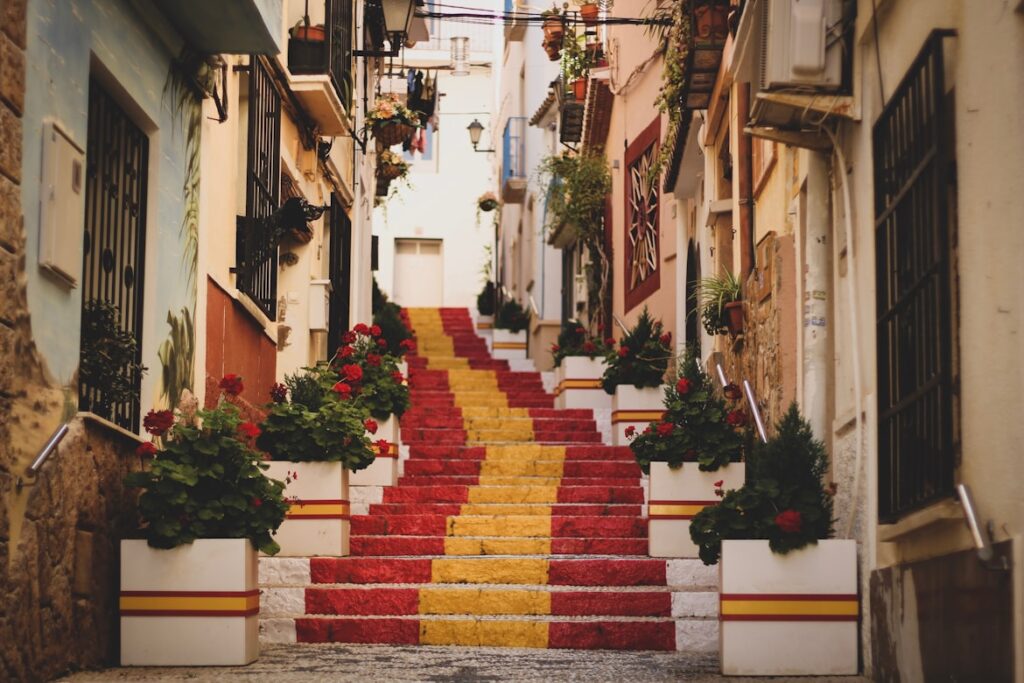
In the U.S., the legal minimum for paid vacation is… zero.
Not a typo. Zero.
Whatever time off you get is usually framed as a “perk,” and for many people it’s just ten days a year.
Spain couldn’t be more different.
There, the legal minimum is 22 paid vacation days, and that’s before you even count the many public and regional holidays. Rest isn’t treated like a luxury. It’s treated like something every person deserves.
The government has basically said, “You’re a human being. You need time to live your life.”
It’s not negotiable.
And that guaranteed time to just be is a huge reason Spaniards enjoy a richer, calmer quality of life.
Related: I’ve Lived in Spain for 6 Years — Here Are 10 Unspoken Rules To Follow When You Visit
3. They (Statistically) Work Less

Spain’s “work to live” mindset isn’t just a vibe; it shows up in the numbers.
Americans work about 1,799 hours a year on average.
Spaniards work about 1,632 hours a year.
That’s a difference of 167 hours. More than four full workweeks.
So Spaniards work a full month less each year, yet consistently rate their quality of life higher.
It’s a clear sign that they’ve rejected the idea that more hours automatically mean a better life.
They value time, balance, and well-being more than filling every spare moment with productivity.
4. They Have a Real, Social Lunch (Not a “Siesta“)
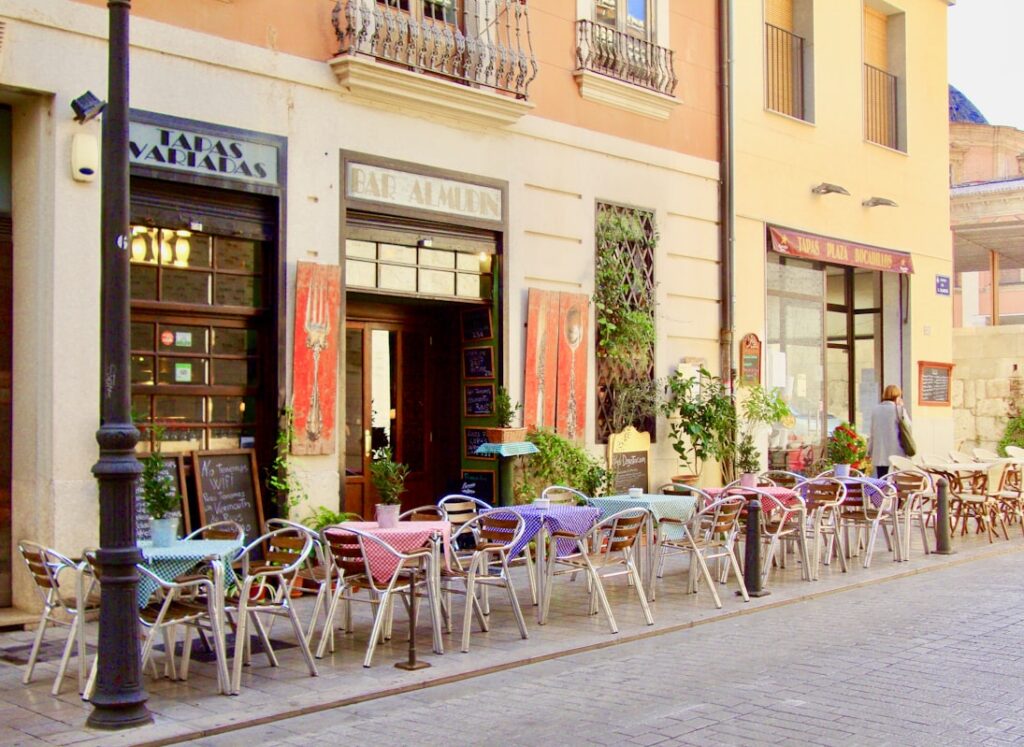
A lot of people think Spain shuts down in the afternoon so everyone can take a long nap.
That’s the classic siesta stereotype. But it’s mostly a myth.
A survey found that almost 60% of Spaniards never take a siesta.
Only about 16% nap every day.
So if no one is actually sleeping, why do shops close from 2 PM to 5 PM?
Two big reasons.
First: Spain is technically in the wrong time zone.
Back in the 1940s, Franco moved the clocks to match Nazi Germany.
Geographically, Spain should follow UK time.
Because of that shift, their “2 PM” is basically our “1 PM.” The whole day runs a little later.
Second: That midday break isn’t for sleeping. It’s for living.
It’s for sitting down to the biggest meal of the day, not eating a sad desk sandwich in ten minutes.
It’s for talking with coworkers, catching up with friends, or heading home to eat with family.
It’s about protecting a meaningful moment in the middle of the day.
5. The Menú del Día Makes Quality Food Accessible
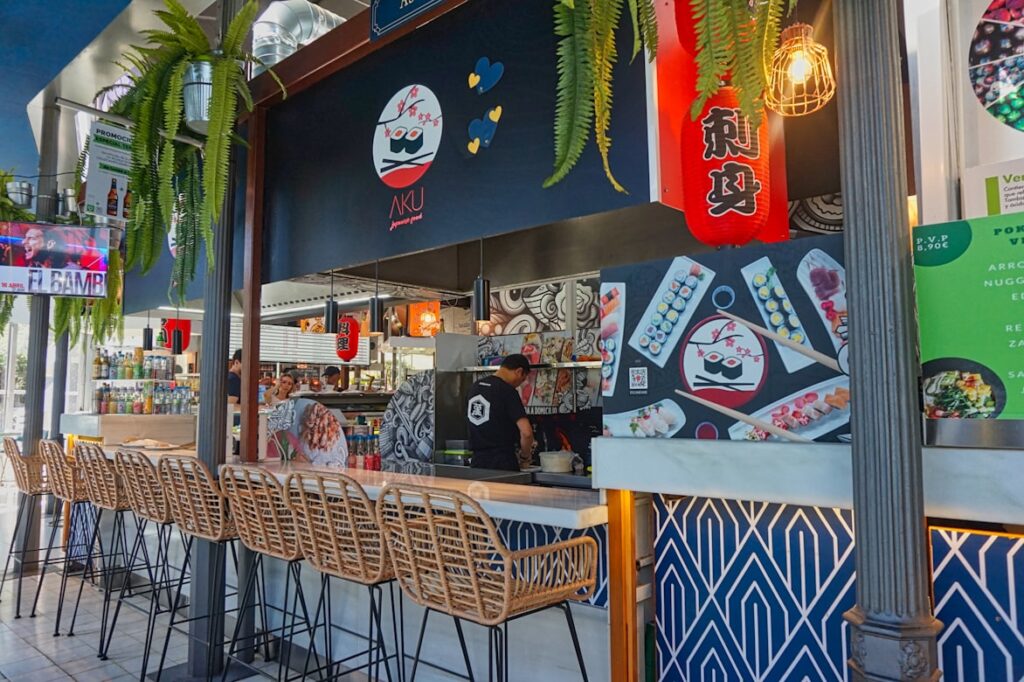
That long Spanish lunch break isn’t just about relaxing.
It’s powered by one of the smartest food traditions ever created: the menú del día, the “menu of the day.”
And this isn’t some basic lunch special. It’s a full three-course meal, all for about €12 to €17.
Here’s what you usually get:
- Primer plato: a first course like soup, salad, or a little paella
- Segundo plato: a heavier dish, often meat or fish
- Postre: dessert — fruit, flan, ice cream, something simple but good
- Plus: bread and a drink (and yes, wine counts)
The whole thing started with a 1965 law meant to make sure workers could afford a healthy, satisfying midday meal. And it worked. It stuck. And today it’s still one of the best parts of Spanish life.
It pulls people out of the office.
It gets coworkers talking like actual humans.
And it makes fresh, high-quality food affordable for everyone, not just for people with big salaries.
It’s one of the subtle ways Spain makes everyday life feel a little richer.
6. Healthcare Is a Right, Not a Financial Crisis

People walk around with a level of security that’s honestly rare in the U.S.
The biggest reason? Healthcare.
Spain’s public healthcare system is basically universal.
It’s funded through taxes, and it’s free when you need it.
No surprise bills. No complicated insurance networks. No panic when you feel a cough coming on.
And here’s the part that really changes things:
Since 2018, healthcare access in Spain is based on residency, not your job.
In the U.S., losing your job can feel like losing your safety net.
In Spain, that fear barely exists.
People aren’t constantly calculating what a doctor visit might cost. They’re not staying in bad jobs just to keep their insurance.
That peace of mind is a kind of wealth you can actually feel.
It’s one of the big reasons Spaniards enjoy life the way they do.
Also Read: 10 Expat Friendly Cities Where $1,500 a Month Feels Like a Millionaire’s Lifestyle (Seriously)
7. They Have Security in Old Age
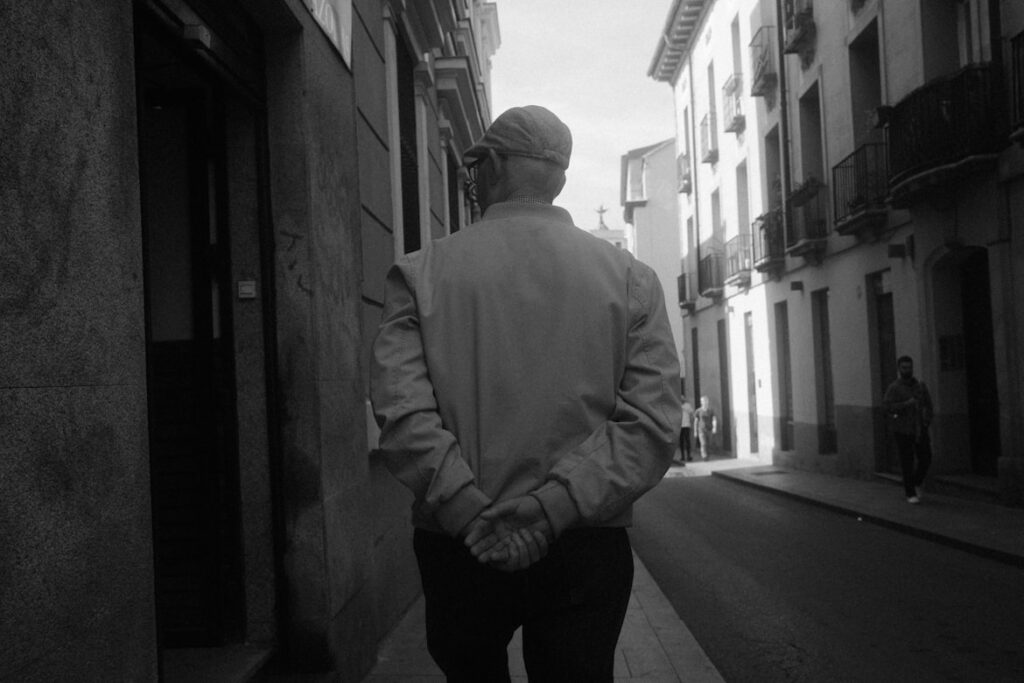
The safety net in Spain doesn’t stop at healthcare.
It follows people into retirement, too.
Spain’s pension system has two parts.
There’s a contributory pension for people who paid into social security through their working years.
But there’s also a non-contributory pension, and this is where things really differ from the U.S.
That second option guarantees a basic level of income for low-income residents or people with disabilities, even if they didn’t earn enough to build a full pension.
It creates a floor no one falls through.
Combine that with universal healthcare, and two of the biggest financial fears in American life — medical bills and retirement — are dramatically softened.
And when those fears fade, something interesting happens.
People actually relax.
They live in the present because they’re not terrified of the future.
That sense of security is a huge part of why the Spanish lifestyle feels so unhurried and grounded.
8. Life Happens in the “Public Living Room”
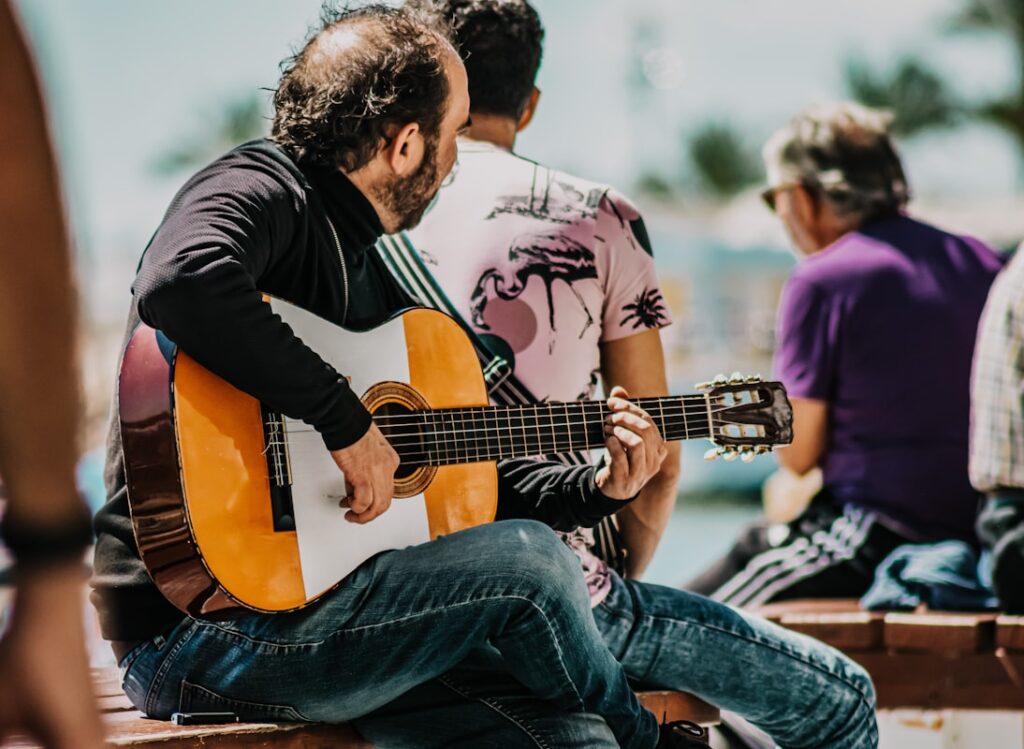
When people feel secure, they can actually pay attention to what matters most: each other.
And Spain makes that incredibly easy.
Spanish towns and cities are built for connection. The layout itself encourages people to gather, wander, and talk.
At the center of almost every place is the plaza, the public square.
It’s not just a tourist landmark. It’s the shared living room of the community.
Kids play there after school.
Grandparents sit on benches and talk for hours.
Friends meet for a coffee or a quick drink.
It’s a space designed for life to happen out in the open.
One American student studying in Madrid said that U.S. neighborhoods often feel like “geographic tags”, just places where people live, but not places where people meet.
In Spain, the plaza gives people a reason to come together every day.
This is communal wealth in its purest form: beautiful public spaces that make connections free, easy, and normal.
Also Read: You’ve Been Warned: Medicare Won’t Cover These 13 Everyday Medical Costs For Seniors
9. They Invest in Daily Social Rituals
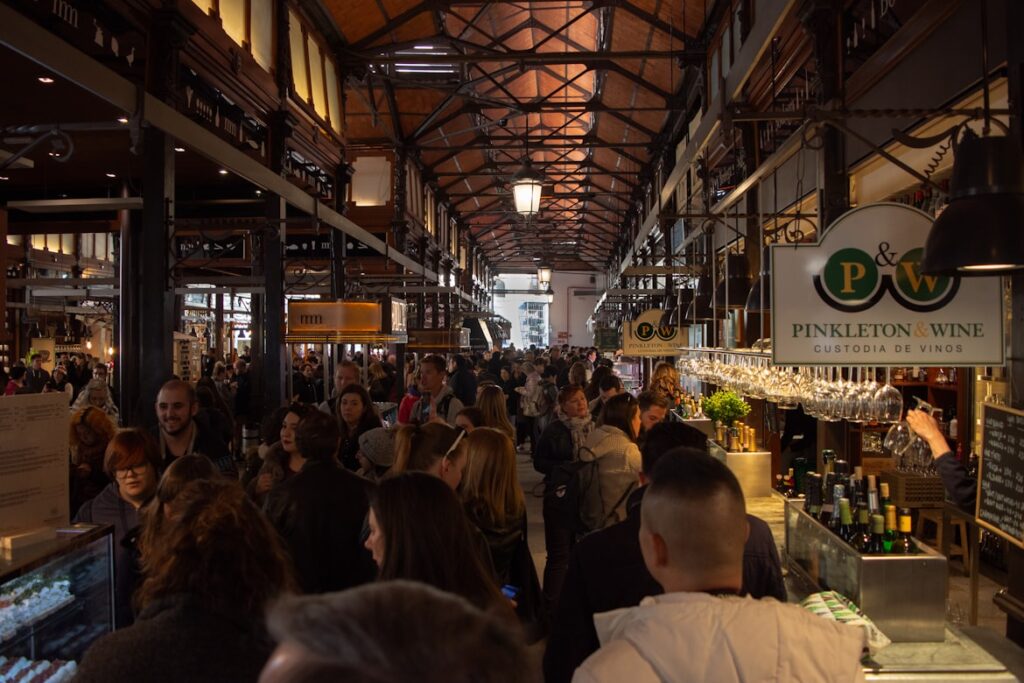
This is the final piece of the puzzle, and honestly, the most beautiful one.
Life in Spain runs on low-cost, high-connection habits.
Tiny rituals that happen every day, not just on weekends or special occasions.
These rituals tie everything together.
El Paseo
This is the evening stroll, and it’s a beloved tradition.
Just before dinner, whole neighborhoods head outside for a walk.
It’s not about steps, exercise goals, or checking a box.
It’s about being out in the world, seeing familiar faces, saying hello to neighbors, and feeling part of something bigger.
It’s a soft, everyday celebration of life.
Tapas

Tapas aren’t just small plates. They’re a social rhythm.
Going out for tapas (“tapear”) is about wandering from place to place, sharing food, and talking.
In cities like Granada, you even get a free tapa with every drink.
It’s brilliant. It makes socializing affordable, natural, and spontaneous.
Family Meals & Fiestas
Meals in Spain aren’t rushed.
Lunch or dinner can stretch on for hours because the point isn’t the food. It’s the company.
As one observer put it, “The Spanish care about their food, but care more about who they’re sharing it with.”
And then there are the fiestas.
These aren’t big corporate-sponsored events.
They’re homegrown, deeply local celebrations meant to strengthen bonds and celebrate community.
These small rituals are where Spanish life really shines.
They don’t cost much. They don’t require planning.
But they create a sense of belonging that money can’t buy.
Redefining What It Means to Be “Rich”
When you look at these nine Spanish habits side by side, the picture becomes pretty clear.
American life often feels like a competition. A race to accumulate more.
A hustle culture that tells us to trade our time, our health, and sometimes our sanity for some future payoff.
And along the way, we end up comparing ourselves to everyone else: their houses, their vacations, their cars, while quietly carrying our own stress and debt.
It’s a game no one can really win.
Spain isn’t playing that game. It’s practicing something entirely different.
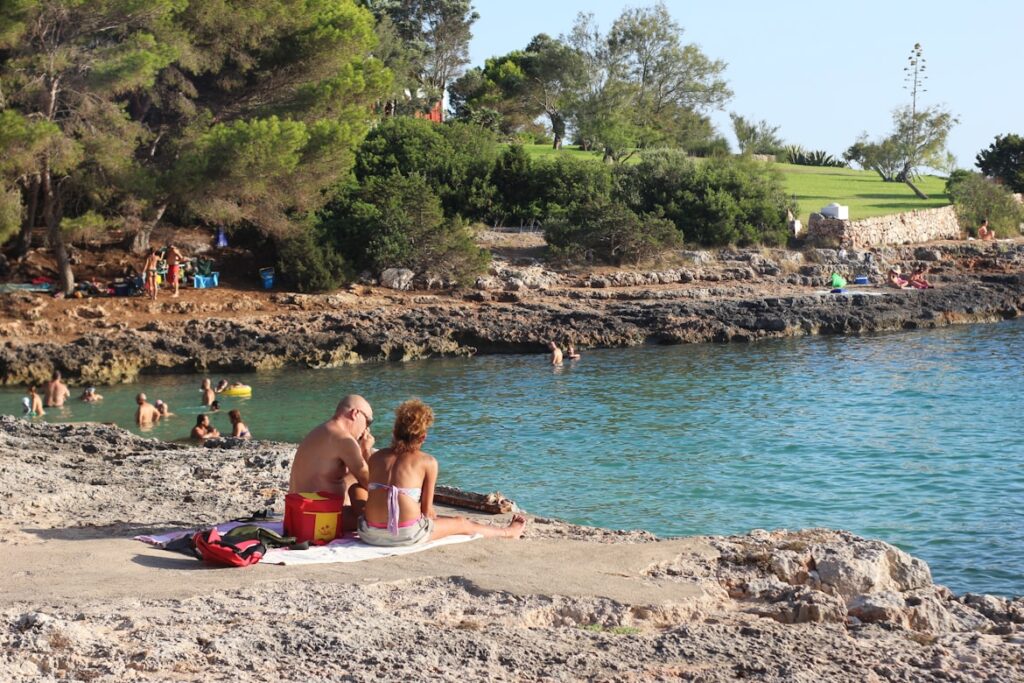
They built a society where basic security isn’t a privilege, but the starting point.
And when you remove that constant background fear, people finally have room to chase a different kind of wealth.
The wealth of time, with 22 days of guaranteed vacation.
The wealth of health, with universal care that’s free when you need it.
The wealth of connection, found in every evening stroll, every shared tapa, every slow family meal.
Spaniards have something many of us spend years searching for.
Not more, just enough. And the space to enjoy it.
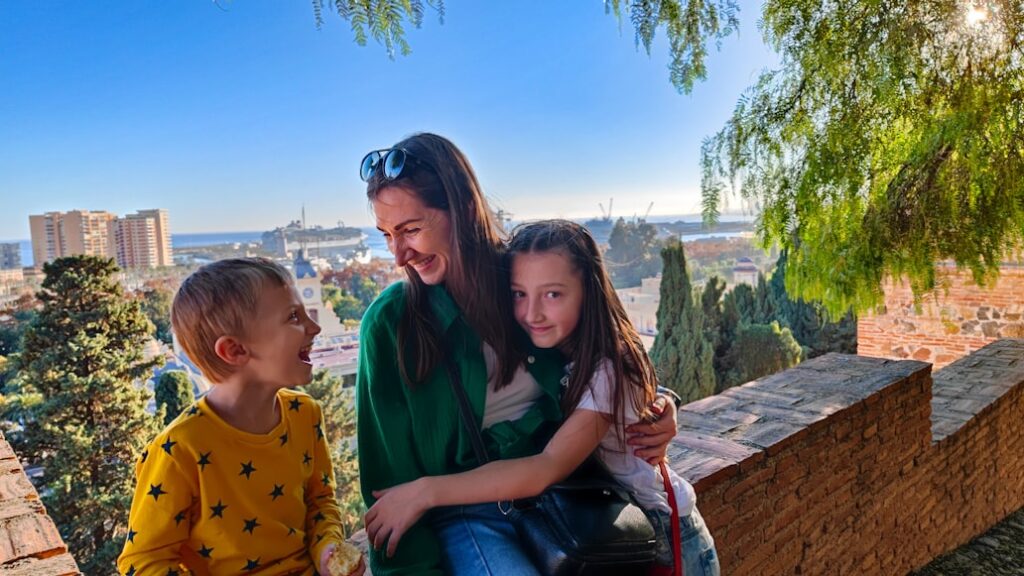
So here’s the real question. You don’t have to move to Spain to borrow a little of this wisdom.
What’s one small “work to live” value you could bring into your own life this week?